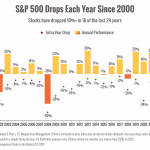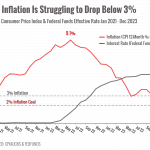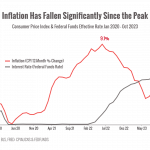So what if the market does go down again?

Over the past several weeks, the stock market has experienced both the fastest crash and the most robust bounce ever seen. Right now, while things are relatively calm, I want to underscore the following points that are profoundly important to your investing success.
- When stock prices are going down, the enduring value of the underlying companies is going up. A market decline is therefore always to be experienced as a sale, and the very nature of sales is that they are temporary. The lower prices go, the more value is to be had at those prices. You instinctively know this about virtually everything else in your economic life. If you can’t apply that same correct instinct to the stocks of America’s and the world’s great companies, it’s not probable that you can ever become a successful investor.
- Staying fully invested during temporary market declines is the only sure way to capture the entirety of the market’s permanent advance. It is not possible consistently to sell out of falling markets, and later buy back into already advancing markets, thereby capturing the long-term returns of equities. Those returns are your reward for staying calm.
- You never try to make long-term investment strategy out of short- to intermediate-term disruptions. We have a plan for getting you to the goal you need to reach, in order to secure a successful retirement. To achieve that goal, you need to invest consistently. And to stay invested, not just when the sun is shining.
- Perhaps more today than ever, bonds, CDs and the like are not an alternative. At the moment, the cash dividend of the S&P 500 is close to three times the yield on the 10-year Treasury note. Even if dividends were to halve in the current crisis, and interest rates stayed where they are, stocks would still yield more than the 10-year Treasury. I’ve never seen that before, and when this crisis passes, I don’t ever expect to see it again. Bonds are simply not, in my judgment, a rational alternative to stocks for the long-term investor.
- How low the stock market ultimately goes in response to the economy’s cardiac arrest is both unknowable and — to the long-term, goal-focused, planning-driven investor — irrelevant. (Unless, of course, he/she is still in accumulation mode, in which case a renewed decline would be a genuine godsend.)
I hope sharing our enduring principles helps both steady you in the present and focuses you on your long-term success. As always, if you have any questions don’t hesitate to give me a call.
When the world goes as haywire as it’s done lately, you may have occasion to question your investment strategy — and even your overall financial planning. If so, you may wish you could get an objective second opinion you can trust, from a friend. I hope you’ll know me to be that friend.
Wishing great success,
Chris
 |
Chris Mullis, Ph.D. Founding Partner  Financial Planning. Financial Planning.Wealth Management. Since 2006 AskNorthStar.com |








